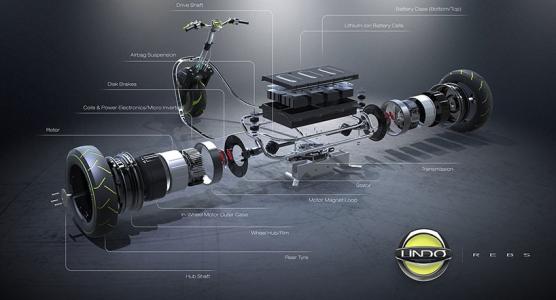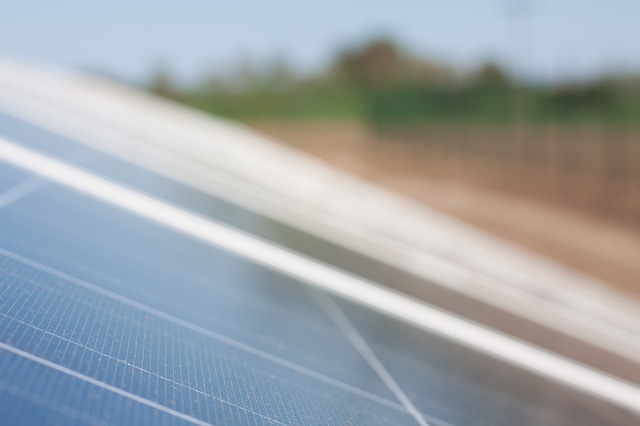When to Charge Lithium-ion Batteries?
Feb 27, 2020 Pageview:1115
Smartphone users always prefer cellphones with larger battery capacity. Similarly, they are always searching the internet and asking experts for tips to extend the battery life of their smartphones. With the advent of new technology, fast charging has made life easier in many ways because now mobiles can be charged within a matter of few minutes compared to the long hours that they were used to take in the past few years.?
On the downside of new technology, now the batteries are irreplaceable due to the usage of lithium-ion battery cells in new models. As a result, the deterioration of battery life is inevitable.?
Smartphone users start experiencing the decline of battery timing after using the mobile phone for about a year or more. It is a gradual process when the battery of your phone doesn’t last as long as it was used to in the star. After about two to three years, it will be very difficult for you to get a full day charge from your mobile on a single charge.?
However, there are few techniques through which you make sure that the aging process of the battery is slowed down. You probably had asked many people about when to charge your cell phone and about the impacts of overnight charging on smartphones. These common questions are answered in detail here so you can clear your misconceptions once and for all and adopt useful techniques to prolong the battery life of your cell phone.
There is a prevalent myth about the smartphone batteries that even the Li-ion battery is 100%. There is still more space for charging. It may be true to some extent that the battery level indicated on the screen of the smartphone may be less than the actual battery status, but it does not mean that you should utilize that small percentage of space.
In fact, it is highly recommended that you do not charge your battery fully 100% and above it (overcharging). Some of the smartphone manufacturers have placed an absolute limit on the amount of battery a cell phone discharges after a full charge.
This is due to the working of the batteries. A lithium-ion battery is basically made up of two layers of lithium cobalt oxide and graphite. Due to the movement of ions from the graphite layer to the other, energy is released. When a battery is being charged, ions are being transferred to the graphite layer to charge up the battery.
Another important tip about the best timing of charging the battery is that you should never drain your battery too much before recharging it. Remember that a cell phone uses a small percentage of the battery, even in the standby and sleep mode. Therefore, you should maintain the battery levels somewhere in the middle and charge it at least when the battery has decreased to about 10%.
Most of the battery experts agree that partial charging is one of the best methods to prolong the life of a lithium-ion battery. It can have massive advantages on the longevity of the battery cell. Partial charging is beneficial because when the battery is very less, lithium-ion batteries take a lot of current and functions on lower voltage levels. As the battery charging level increases, the current passing through it decreases until it is fully charged. Thus when the battery is charging from 20 to 80 percent or usually 30 to 80%, the voltage level is low, which doesn’t have a much worse impact on the battery.
If you want to see a remarkable improvement in the battery lifespan of your cell phone over the long-term, avoid a long period of full charge cycles. It means that you should prefer small top-ups, for example. You should charge the lithium-ion battery when it has decreased to 40 or 50% and then charges it again. In this way, the battery will not deteriorate quickly.?
Moreover, you should avoid charging at the time of streaming videos or playing video games as it will put an extra strain on the battery and impact it severely. Instead, you should prefer time for the charging of a Li-ion battery when you are not using the smartphone. In this way, the strain on the battery will be less, and its lifespan will not depreciate.
Various smartphone companies have different opinions about overnight charging. Generally, experts are of the opinion that if you keep charging your mobile phone above 100%, you are most likely to damage the battery as it has a negative impact on the age of the lithium-ion battery. Independent experts in the field of battery-technology and lithium-ion powered devices have often warned against overnight charging your smartphone. Experts have the opinion that overnight charging eventually speeds up the process of battery life deterioration.?
Despite numerous researches in this field, surprisingly, all of the major smartphone firms like Google, LG, Apple, and Samsung have ignored this and even said that overnight charging does not affect their cell phones at all. They have left the choice of overnight charging to users, so it is the responsibility of the users to understand the facts and make an intelligent decision regarding the timing and method of charging the lithium-ion battery.??
Apple has not categorically declared overnight charging to be harmful and has left it on the users’ choice. According to a product manager of Google, overnight charging does not matter at all because once a phone’s battery reaches 100%, it actually stops charging.
This is a fact that the speed with which lithium-ion battery ages depend on many factors. Due to overcharging, the chemistry of the battery architecture changes, which makes it less efficient in delivering power to the smartphone.
However, it should also be noted that all lithium-ion batteries have a restricted lifespan, which is bound to degrade with time. But the way you use it will determine how quickly it deteriorates. In terms of overnight charging, it not possible to determine how fast a battery age due to over-charging. It is possible that it may not have any impact on the phone for a few years. If you keep changing your smartphones, it is possible that you may not even notice any changes in battery life.
Most of the other smartphone creators agree that users should charge their devices within a specific range and don’t always keep it at 100%. Samsung says that people should keep their phones charged to at least 50%. Apple says a similar thing for the iPhone to keep it half-charged for longer battery life.
The one practice about charging and discharging lithium-ion batteries that most of the cell phone companies agree is that you should not fully discharge your mobile before charging it again. Moreover, extreme temperatures, i.e., too hot or too cold, should be avoided as much as possible for healthy battery life.
The fact that a lithium-ion powered cell phone should not be fully discharged is true as most of the experts agree on this. Moreover, you should always store the battery of the li-ion driven devices at room temperatures.?
There are different point of views about the charging of a Li-ion battery, but a majority of the experts agree that there is no need to fully charge a lithium-ion battery every single time because high voltage put pressure on the battery and accelerates the aging process.
Some people may find it to be disappointing, but its simplest solution is to charge the cell phone whenever you can during the whole day in small stages instead of doing it continuously. In this way, you will get a good battery lifespan and incredible battery capacity for an entire day as well.
After the battery has been fully charged to 100%, most of the power does not pass through the battery, and instead, it gets small remaining charges. However, it puts pressure on the battery, which starts destroying its structure, leading to poor battery life. Therefore, you should charge your mobile in stages and avoid overcharging.
There is no specific boundary of the deep discharging. The deeper it is, the more stress will be put on the battery, which will lead to poor battery life. In the long run, it will deteriorate the overall lithium-ion battery span?
The remarkable thing that you should let your phone battery die before charging the first time is considered to be a fact by lots of people. However, in reality, it is nothing but a myth. Scientifically, it is called deep discharging. It is not beneficial for the battery in any way but instead ends up having a negative impact on the li-on battery as deep discharge puts extreme stress on the battery, which quickens the aging process.
People should be aware that a lithium-ion battery in your mobile does not care about the timing or discharging for the first time at all. Even Apple has an official statement on their informational papers saying that users can charge their Apple lithium-ion battery at whatever time they like. Apple has clearly stated that there is no need to discharge a battery before recharging it because battery works in charge cycles. Moreover, users should maintain the batteries of their smartphones above 50% and charge it to maintain that level.
- Prev Article: Li-Ion Battery Price Trend-Price Analysis
- Next Article: Optimal Charging of A Lithium-ion Battery
Leave Message
Hottest Categories
-
Hottest Industry News
-
Latest Industry News












